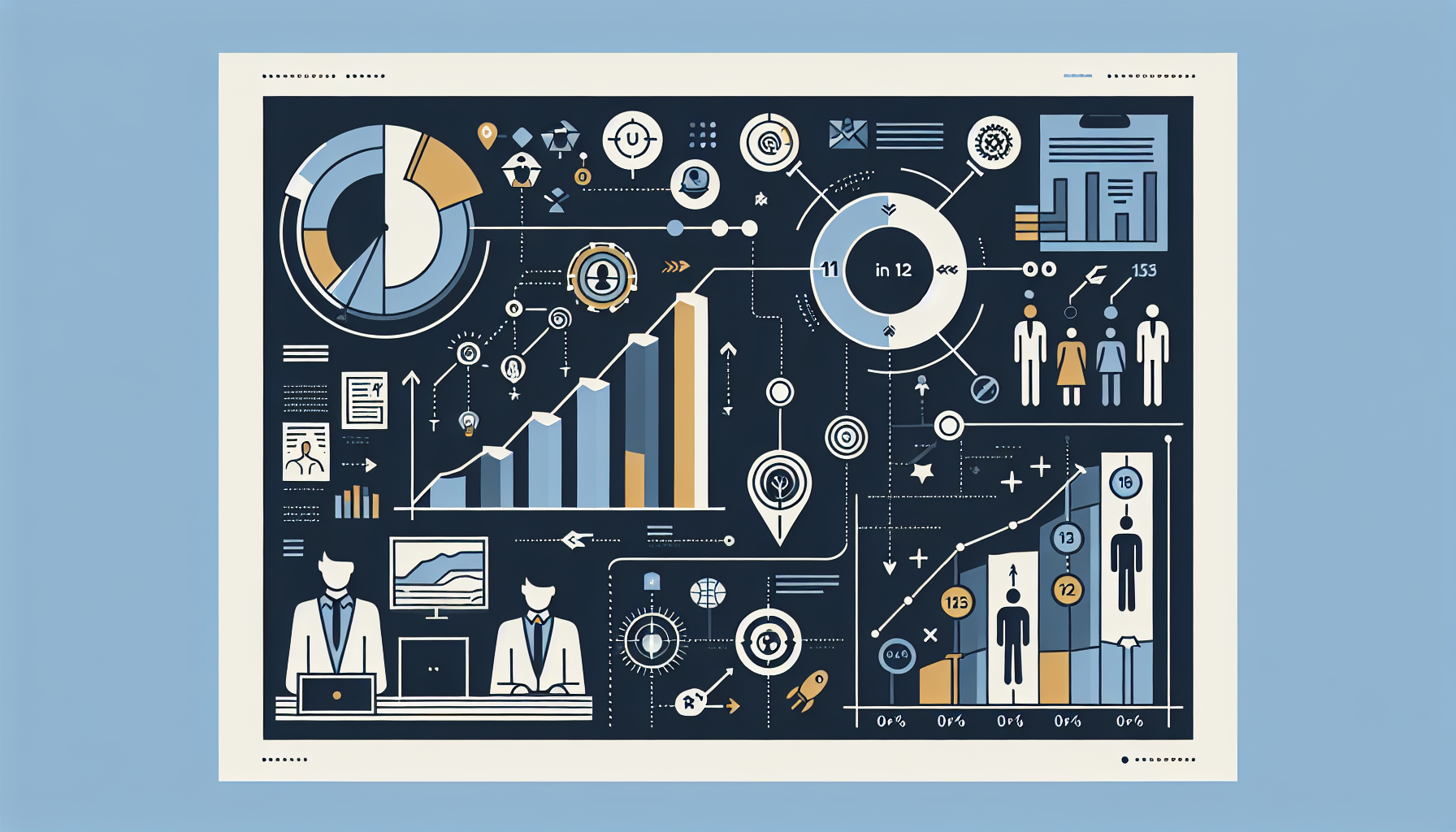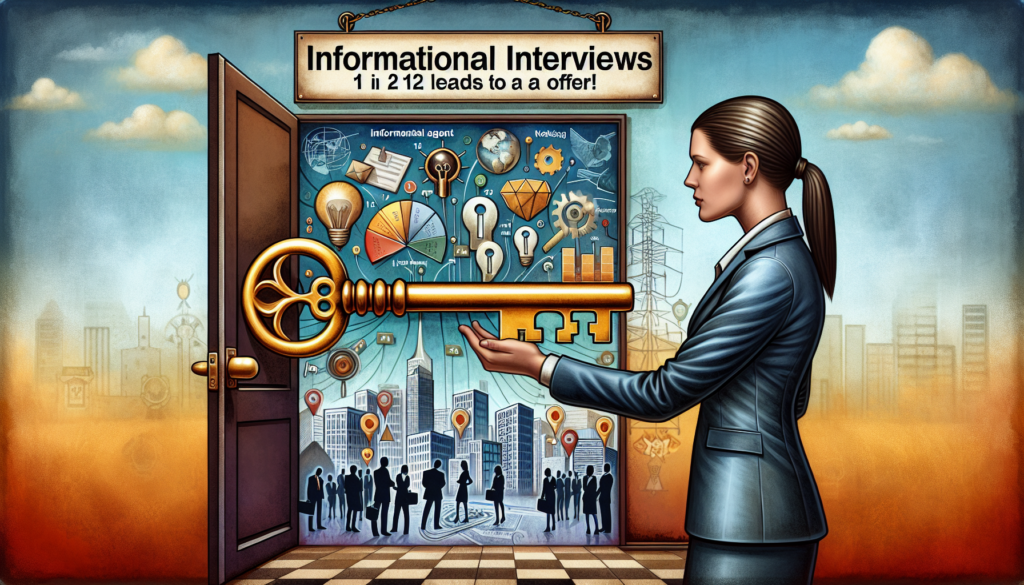Informational Interviews: The Secret Weapon to Landing Your Dream Job (1 in 12 Leads to an Offer!)
Meta: Discover how informational interviews can be your career game-changer! Learn proven strategies, success rates, and expert tips to turn casual conversations into job offers in 2024.
Would you believe that a simple conversation could lead to your next big career break? Here’s a mind-blowing stat: 1 in 12 informational interviews leads to a job offer, yet only 15% of job seekers use this powerful strategy! I’ve personally seen how these casual professional conversations can unlock doors that traditional applications never could. In this guide, I’ll show you exactly how to leverage informational interviews to become your secret weapon in today’s competitive job market.

What Are Informational Interviews?
Let’s chat about informational interviews, shall we? They’re not your typical job interviews, that’s for sure. Think of them more like friendly chats with industry pros where you’re gathering intel, not trying to land a job on the spot.
So, what’s the deal with these interviews? Well, they’re all about learning. You’re picking the brains of people who are where you want to be. It’s like getting a backstage pass to your dream career!
Now, here’s the cool part – they work. Why? It’s all about psychology. People love talking about themselves and their work. When you show genuine interest, it creates a positive connection. Plus, you’re not putting pressure on anyone to hire you, which makes the whole thing way more relaxed.
Did you know that some studies suggest up to 80% of jobs are filled through networking? That’s where informational interviews come in handy. They’re your secret weapon in the job hunt arsenal.
The Strategic Advantage of Informational Interviews
Alright, let’s talk strategy. Informational interviews are like planting seeds for your future career garden. You’re not just gathering info; you’re building relationships that could bloom into amazing opportunities down the line.
Think about it – you’re getting face time with industry insiders. These folks know about jobs before they hit the job boards. It’s like having a spy in the enemy camp, except the enemy is your dream job, and the spy is your new professional friend.
Plus, you’re getting the real scoop on what it’s like to work in your target field. No sugar-coating, no corporate speak – just honest insights from people in the trenches. That’s gold, my friend.
And here’s the kicker – you’re creating future opportunities without even realizing it. Maybe the person you’re talking to isn’t hiring now, but six months down the line? You could be the first person they think of when a position opens up.
How to Request an Informational Interview
Okay, so you’re sold on the idea. Now, how do you actually get one of these magical meetings? First things first – you need to find the right people to talk to. LinkedIn is your best friend here. Look for alumni from your school, people with job titles you’re interested in, or even second-degree connections.
When you’re reaching out, remember – it’s not about you. It’s about them. Craft a message that shows you’ve done your homework and you’re genuinely interested in their expertise. Something like, “I admired your recent project on X and would love to learn more about your journey in the industry.”
Pro tip: Use LinkedIn, but don’t abuse it. If you can find an email address, that’s often better for initial contact. It feels more personal and less like you’re just another LinkedIn request.
And don’t forget to follow up! If you don’t hear back, wait a week and send a gentle reminder. People are busy, and your first message might have gotten lost in the shuffle.
Preparing for Your Informational Interview
Alright, you’ve landed the interview. Time to prep! Research is key here. Know the person’s background, their company, and recent developments in their industry. You want to come across as informed and genuinely interested.
Now, let’s talk questions. Good ones might be, “What’s a typical day like in your role?” or “What skills do you think are most valuable in this industry?” Avoid asking directly about job openings or salary – remember, this isn’t a job interview.
As for etiquette, treat this like a professional meeting. Dress appropriately, be on time (or early), and bring a notebook to jot down insights. Oh, and have a few copies of your resume handy, just in case they ask for it.
During the Interview: Best Practices
You’re in the hot seat now. Well, not really – remember, this should feel more like a coffee chat than an interrogation. Set a friendly tone right from the start. A genuine compliment about their work can break the ice nicely.
Keep an eye on the clock. You probably asked for 20-30 minutes, so respect their time. Have your most important questions ready to go in case things run short.
Take notes, but don’t bury your head in your notebook. Make eye contact, nod, and show you’re actively listening. This is about building a connection, not just information gathering.
And here’s a ninja trick – find common ground. Maybe you both love the same obscure podcast or went to rival schools. These little connections can turn a good conversation into a lasting professional relationship.
After the Interview: Next Steps
The interview’s over, but your work isn’t done! Send a thank-you note within 24 hours. Email is fine, but a handwritten note can really make you stand out.
Now, how do you keep this connection alive? Follow them on LinkedIn, engage with their posts, and maybe send an article you think they’d find interesting every now and then. But don’t be a pest – quality over quantity in your follow-ups.
Keep track of all your informational interviews. Note down key points, any promises you made (like sending them an article), and potential next steps. This info will be gold when you’re ready to make your next career move.
And remember, sometimes these conversations lead directly to opportunities. Other times, they’re more of a slow burn. Either way, you’re building your professional network, and that’s always a win.
Success Stories and Case Studies
Let’s wrap this up with some real-world wins. Take Sarah, for example. She did 15 informational interviews over three months. One of those led to an introduction, which led to an internship, which turned into her dream job. Not bad, right?
Or consider Mark. He didn’t get a job directly from his informational interviews, but the insights he gained helped him ace a job interview six months later. He knew exactly what the company was looking for because he’d talked to three people in similar roles.
The stats back up these stories. One study found that job seekers who used informational interviewing were 2.8 times more likely to land a job than those who didn’t.
But let’s be real – it’s not all sunshine and rainbows. Some people make the mistake of treating these like job interviews, coming on too strong, or not following up. Don’t be that person. Remember, it’s about building relationships, not just finding a job.

Conclusion
Wrap up with emphasis on the 1-in-12 success rate, provide actionable next steps, and encourage readers to start their informational interview journey with confidence.




